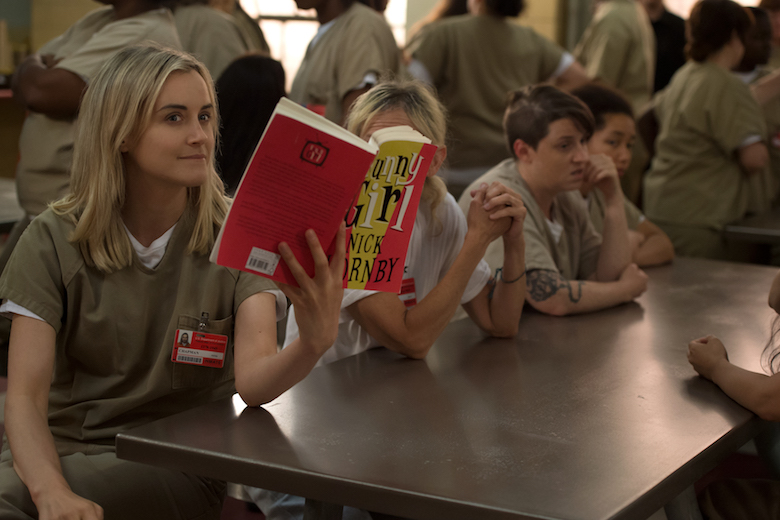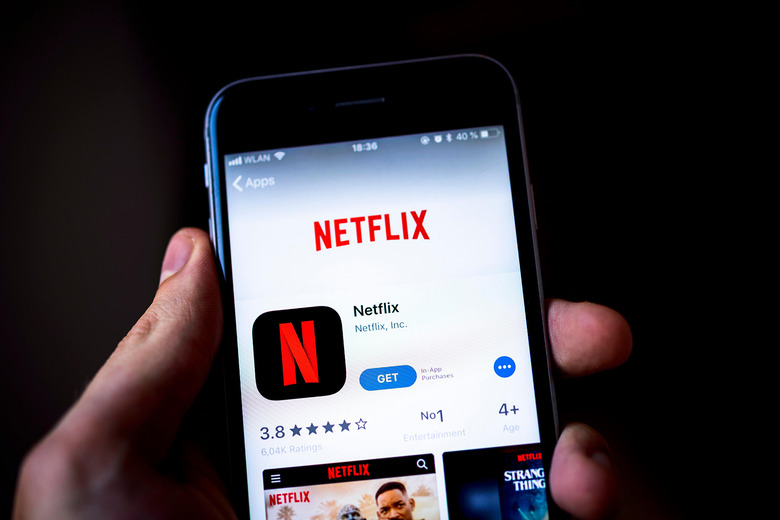Netflix Once Tried To Steer People Away From Saying 'Binge-Watching'
At this point, there's a lot about the Netflix experience that seems so deeply ingrained in the way we collectively experience the streaming giant that it's hard to imagine the way things used to be before — or how we spent our leisure time before we had so much content at our fingertips, so easily within reach. And it's certainly hard to imagine anyone pining again for the days when the inventory at those antiquated bricks-and-mortar retail stores determined what we could watch and when.
As Netflix's original series Orange Is the New Black draws to a close, with the final season having landed on the streamer this past Friday, this is also as good a time as any to look back at another of the experiences Netflix popularized: The practice of binge-watching. Specifically, where that phrase came from.
As part of an OITNB retrospective, Netflix vice president of original content Cindy Holland explained to The Hollywood Reporter how the phrase came about. This was back, mind you, when the show about the inhabitants of a women's prison was still new and helped solidify the idea of Netflix as a home for high-quality original content, something that still seemed to some people like a strange proposition for the service.

At the time, OITNB underscored the then-still novel Netflix model of enjoying content — every episode available all at once, all of it ready for you to binge right through at your own pace without having to wait for something new a week later. Binge-watching — that's what the practice came to be called.
However, "we had some anxiety around the term 'binge' and we kept trying to find other verbs to help people through," Holland told THR. "But it's what the media and audience kept coming back with and stuck to, so we just learned to love and accept it."
The company worried at first about the phrase because the idea of a "binge" has multiple negative connotations. Binge drinking, binge eating, really bingeing on anything suggests an over-doing it and a lack of moderation that doesn't necessarily sound healthy. In fact, the company was so conscious of the potential overtones that they thought a different phrase — like, say, "marathon-viewing" — sounded better.
The idea of a binge, according to Netflix's now-vice president of product Todd Yellin in a 2012 interview with The Wall Street Journal, "sounds almost pathological." Whereas the idea of a marathon suggests something "more celebratory."
Obviously, the company decided to ultimately go with the flow here — in this case, as with others, such as the idea of "Netflix and chill" which no doubt still gives the streamer's marketing professionals a bit of discomfort. They also, in the end, decided to keep letting everyone refer to the practice as binge-watching, which certainly rolls off the tongue a bit easier than marathon-viewing. And the rest is history.
